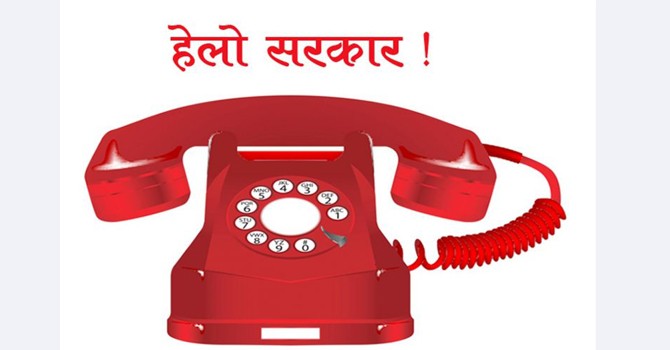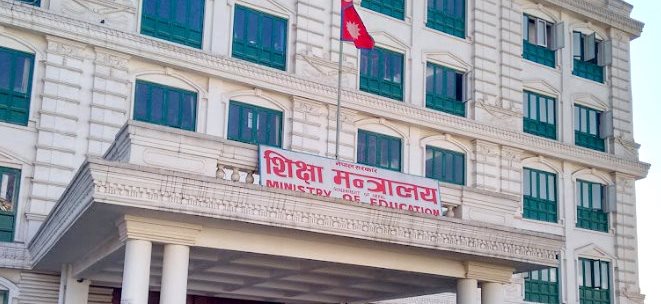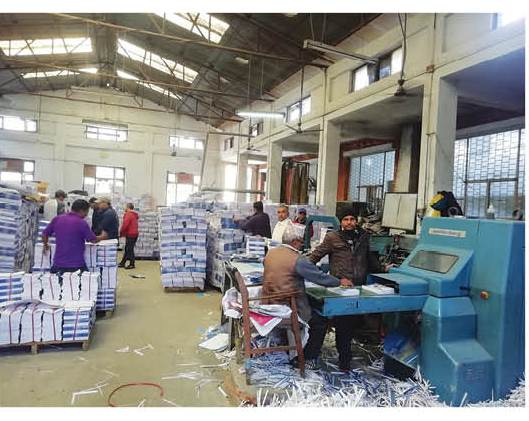Universities run classes virtually, schools doing homework

By Manjima Dhakal
Kathmandu, Apr. 19: Though most academic institutions across the country remain closed after the government announced closure of all organizations except those providing essential services as a preventive measure to control the outbreak of the coronavirus, Purusttom Duwadi, an MPhil student of Kathmandu University under Science, Technology, Engineering and Mathematics (STEM) education, is not free from attending classes online and doing assignments.
Along with Duwadi, 27 students have been attending virtual classes of MPhil in STEM education every day.
Duwadi said the virtual classes gave him opportunity to continue studies in such critical situation. Though it is better to have real classes, the virtual classes have become a boon at this difficult time, Duwadi said.
Prof. Dr Balchandra Luitel, coordinator of STEM education at KU, said along with the launch of virtual classes by School of Education, now Kathmandu University has approved a policy take the course of virtual education in all its schools. According to Luitel, now all the schools are running virtual classes.
Not only KU, Tribhuvan University officials also informed that almost all faculties of the varsity have been running virtual classes in Master, MPhil and PhD programmes. Even though some faculties have been unable to run classes till now, the university has asked them to do so in next few days, Shiva Lal Bhusal, Rector of the university, said.
The university has been trying to run virtual classes even for Bachelor level students, but huge number of students in that level is a challenge in this regard. But there is no alternative to going virtual even in Bachelor level to prevent students from losing an academic year, Bhusal said.
Meanwhile, the government formed committee to make recommendations about open and distance education has submitted its concept paper to the government.
Lekhnath Sharma, coordinator of the committee, said they had recommended that the government has to teach students from various approaches to ensure wider reach.
The Sharma-led committee has suggested the use of internet, radio, television, telephone for the access of all students. Many students may not have an access to these technologies; in such a situation, the government could mobilize local level teachers in printed module for practice.
The government needs to ask local governments to manage all this effectively, Sharma said
Sharma’s committee has pointed out the issue of digital divide for successful implementation of open education.
Now the government has been doing homework for virtual classes on the basis of recommendations made by the committee, Deepak Sharma, spokesperson of the Ministry of Education, Science and Technology, said.
Besides the government initiatives, many private colleges and schools have already started virtual classes for their students in their own ways.
Euro Kids, Bhaktapur has been taking virtual classes for students from March 25, Indira Aryal, a guardian, said.
Along with teaching online, the school sends many assignments for her Grade III son. Such classes and assignments keep the child engaged and enhance creativty, Aryal said.
Like Euro Kids, many other private schools of Kathmandu Valley are preparing to run virtual classes for their students.
Recent News

Do not make expressions casting dout on election: EC
14 Apr, 2022
CM Bhatta says may New Year 2079 BS inspire positive thinking
14 Apr, 2022
Three new cases, 44 recoveries in 24 hours
14 Apr, 2022
689 climbers of 84 teams so far acquire permits for climbing various peaks this spring season
14 Apr, 2022
How the rising cost of living crisis is impacting Nepal
14 Apr, 2022
US military confirms an interstellar meteor collided with Earth
14 Apr, 2022
Valneva Covid vaccine approved for use in UK
14 Apr, 2022
Chair Prachanda highlights need of unity among Maoist, Communist forces
14 Apr, 2022
Ranbir Kapoor and Alia Bhatt: Bollywood toasts star couple on wedding
14 Apr, 2022
President Bhandari confers decorations (Photo Feature)
14 Apr, 2022









